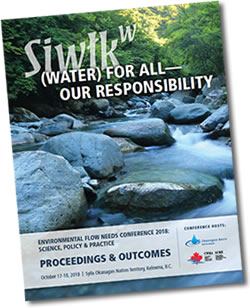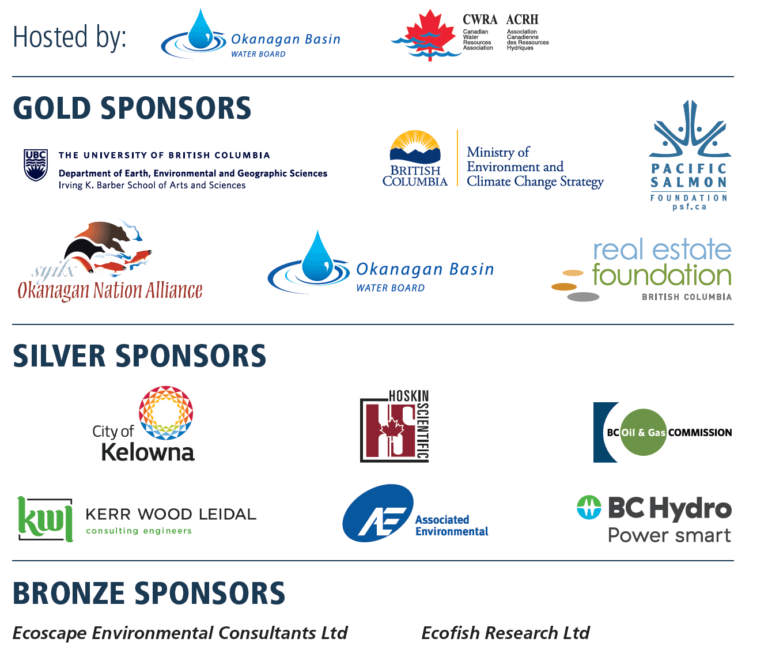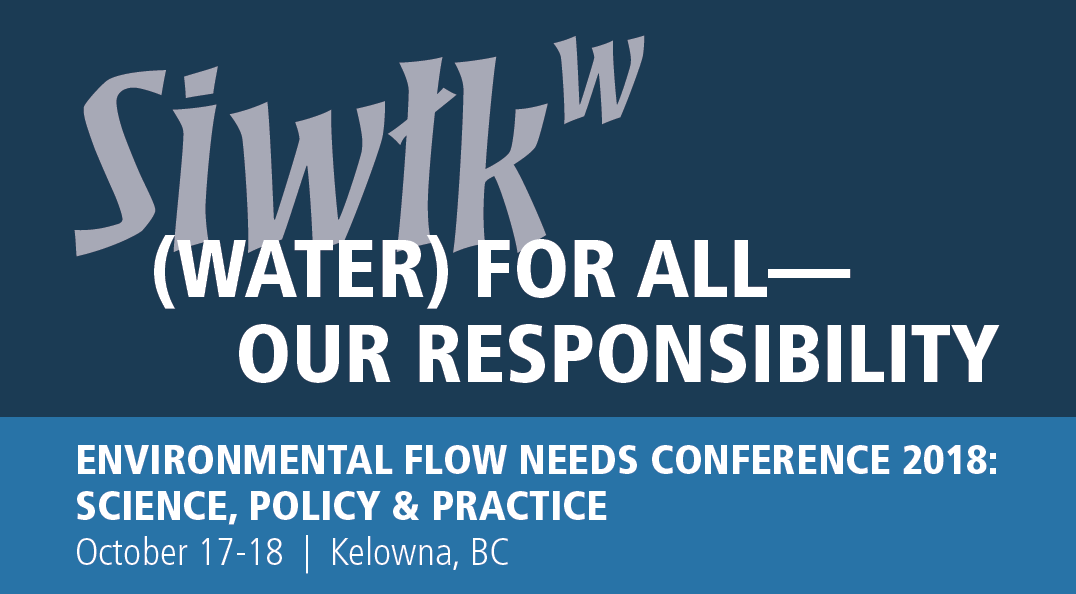2026

siwłkʷ (WATER) FOR ALL – OUR RESPONSIBILITY
Save the Date for the third Environmental Flows Conference.
Environmental Flows Conference 2026
October 7-9, 2026 at the Coast Capri Hotel in Kelowna | Syilx Territory
Secure your room early at an excellent discount rate!
Individual call-in reservations can be made directly by calling 1-800-663-1144. The group code 4457454, or meeting name, must be quoted to receive discount rate.
*The Hotel is not obligated to reserve rooms at the Negotiated rate unless callers specify that they are requesting reservations in connection with the Group.
2024
siwłkʷ (WATER) FOR ALL – OUR RESPONSIBILITY
Environmental Flows Conference 2024
Co-Creating Futures
March 13-15, 2024 in Kelowna | Syilx Territory
This gathering brought together more than 200 representatives from national and international organizations engaged in water management or research, including fisheries and water managers, First Nations and local government policy-makers, regulators, academia, funders and NGOs.
For more information about the 2024 conference:
- Download the 2024 Conference Program
- Download Proceedings & Outcomes
- View the Conference Album on Facebook
- Media Release – Okanagan hosts international gathering to build a sustainable future with siwłkw (WATER) FOR ALL
2018
 siwłkʷ (WATER) FOR ALL – OUR RESPONSIBILITY
siwłkʷ (WATER) FOR ALL – OUR RESPONSIBILITY
Environmental Flow Needs Conference 2018:
Science, Policy & Practice
October 17-18, 2018 in Kelowna, B.C.
This conference brought together representatives from national and international organizations engaged in water management or research, including fisheries and water managers, First Nations, regulators, policy-makers, academia, and NGOs. The conference covered several main themes and focused on the current state of EFN-setting in B.C. and recent EFN-related work in the Okanagan and elsewhere in Canada and the United States.
For more information about the 2018 conference:
- Download the 2018 Conference Program
- Download Proceedings & Outcomes
- Go to EFN2018 Resources
- Media Release
BACKGROUND
The Environmental (or in-stream) Flow Needs (EFNs) of a stream are defined as the volume and timing of water required for effective functioning of the aquatic ecosystem – for fish and other needs. In locations where significant demand or competition for water exists, such as the Okanagan, scientists, policy-makers, planners, and regulators are now focussed on developing methods to determine appropriate EFN flow regimes.
Various approaches for maintaining EFNs have been tested in North America and worldwide, but to date no approach has provided the one-size-fits-all solution to managing this complex issue. In B.C., the introduction of the Water Sustainability Act in February 2016 requires that EFNs be determined for water bodies potentially affected by any new proposed licences for surface or groundwater extractions. This requirement creates opportunities and challenges for water management and the need for better EFN science and collaborative dialogue among all water users to reconcile their needs and interests.
2018 MEDIA




